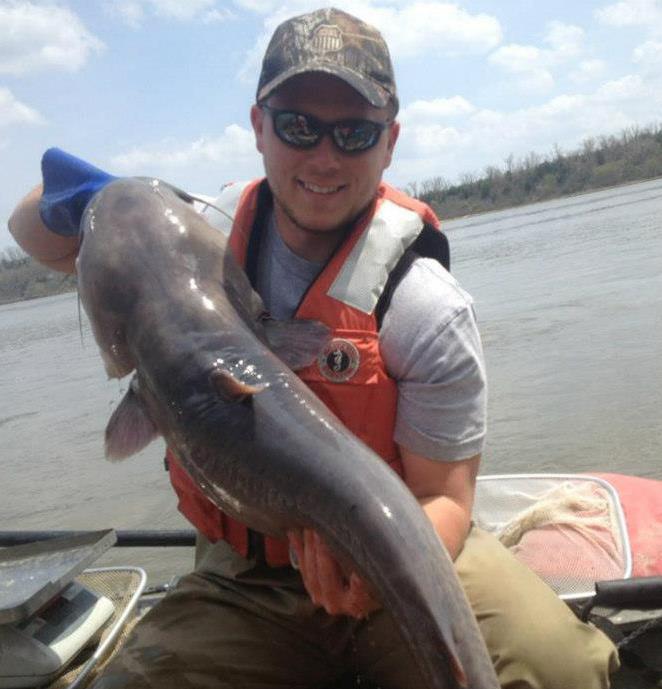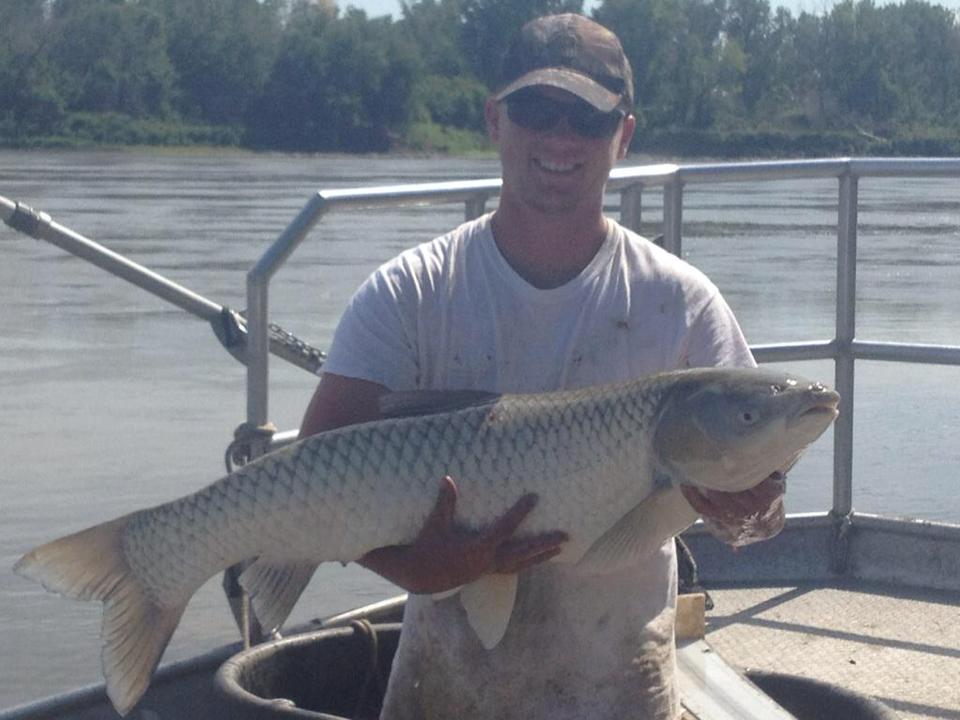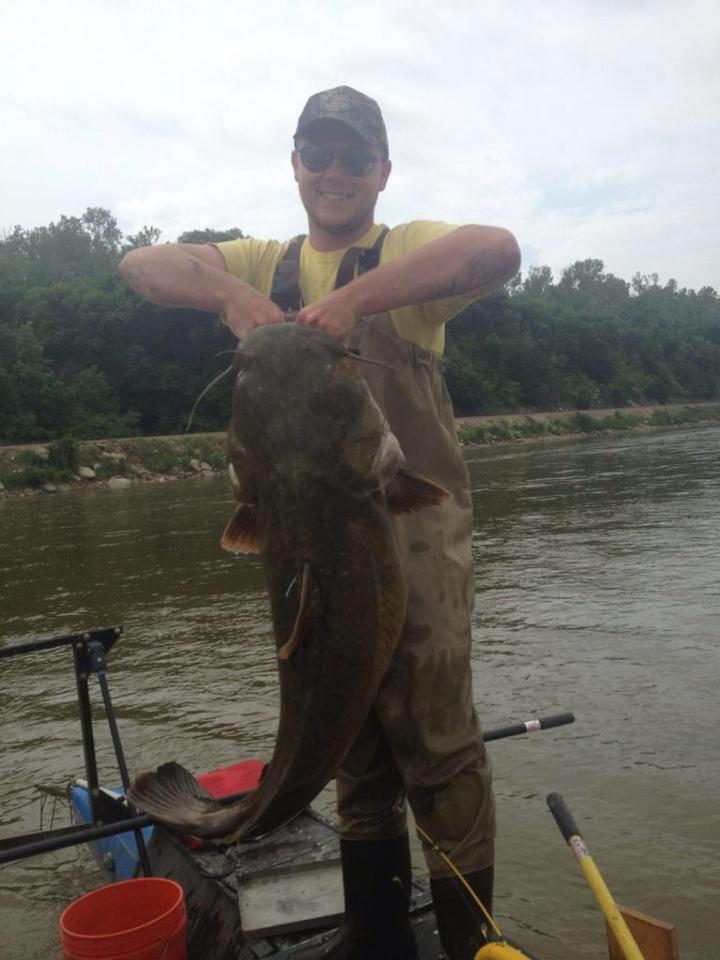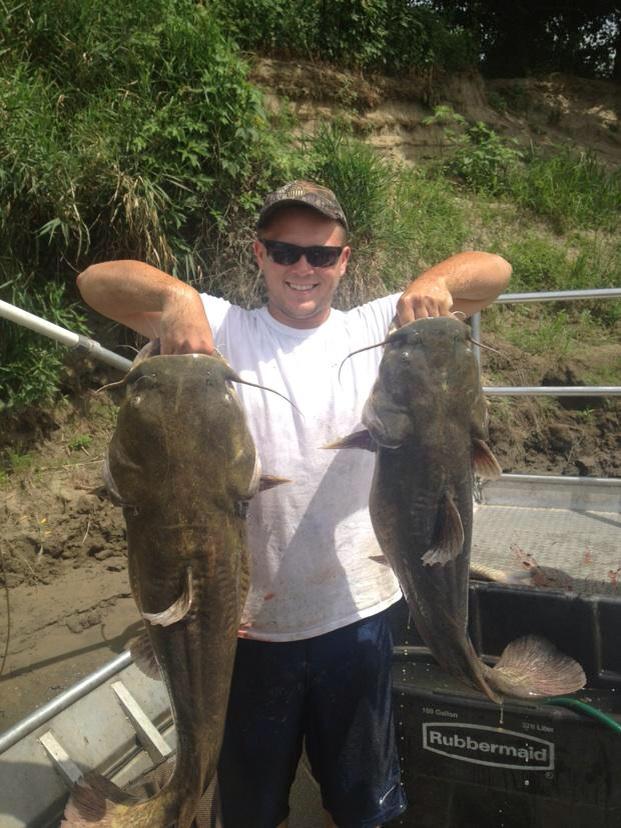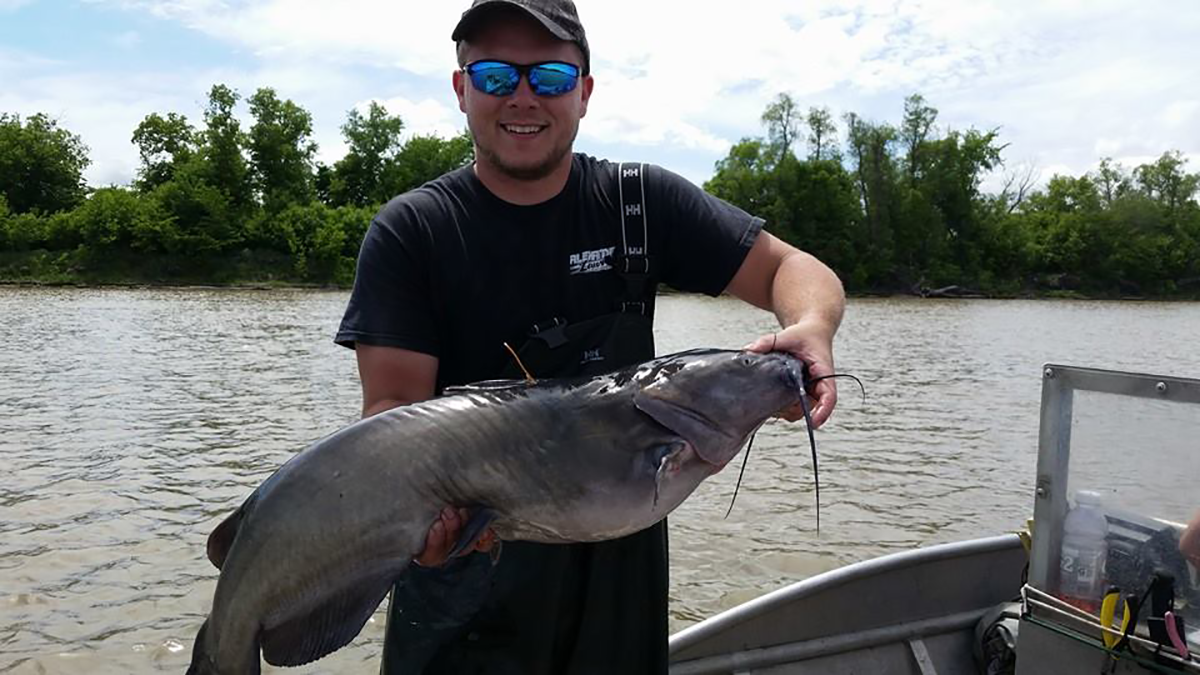
Dylan
Fisheries & WildlifeAs a technician I was able to gain field experiences that I had not had in the past and they really helped me focus on where I wanted to go with my career.
My most vivid memory as a student was my first time electrofishing in the introductory course. I had never heard of electrofishing before, and I could not wait to find out what it was. I was amazed the first time I saw all of the fish come up to the surface unharmed, I had no idea it was possible to do research on fish like this.
The professors in CASNR are the reason I chose to go to graduate school, each and everyone one of them provided me with opportunities and support I could not get anywhere else. The professors in CASNR are extremely willing to help each student on an individual basis, because of the small class sizes it is easy to get to know your professor. I have gained skills from each and every professor within CASNR that have helped me in my pursuit of fisheries.
I chose CASNR because it was a good fit for me. When I first decided to come to UNL I was not sure what I wanted to do with my life but I knew I had to be outdoors for most of it. I talked to several students about different programs around campus. Several of these students had nothing but good things to say about east campus and especially the programs that were offered through CASNR. After looking into several of their programs I decided to take a tour of the campus and learn more about the fisheries and wildlife program that was offered. After the tour I felt like pursuing a degree in fisheries and wildlife was the right direction for me and I have never regretted my decision.
Through classes and internships I was able to gain field experience as well as professionalism that have prepared me for a career in fisheries. Being in CASNR has given me the opportunities I may not have gain elsewhere. Throughout school I was invited to attend several professional conferences, all of which have allowed me to meet other professionals in my field and gain knowledge.
My sophomore year I was able to get an internship with Dr. Steve Thomas as a Water science technician at UNL. This internship focused on local reservoirs and the water quality issues they have such as cyanobacteria (toxic algae) and other things that make lakes unhealthy. As a technician I was able to gain field experiences that I had not had in the past and they really helped me focus on where I wanted to go with my career. I was also able to meet several other professors at the school during my internship which helped me network within the college and ultimately helped me get my second internship.
For my second internship I was hired as a Fisheries technician at UNL with Dr. Mark Pegg. At this point in school I knew I wanted to get a degree in fisheries, but I had not yet had any experience in it. My main job for this internship was helping graduate students with their research, specifically channel catfish on the Platte and Missouri rivers. To do this we would set nets and electrofish throughout several parts of the rivers during the summer. This internship introduced me to fisheries and allowed me to gain the essential skills I now use as a graduate student in Dr. Mark Pegg’s lab.
In my junior year of college I had the opportunity to run for office within the American Fisheries Society student subunit and luckily became the vice president of the club. I also volunteered with the big event that is held every year by the University. This event focused on helping people from around the community that needed help in different ways. The club helped Nebraska Game and Parks with their electrofishing and other forms of sampling on local lakes; I also attended multiple American Fisheries Society conferences. I was also a member of Farmhouse Fraternity which helped me meet more people around east campus and look at different aspects of CASNR degrees.
Year: Graduate Student
Current Employer: UNL Graduate Assistant Notable
- Water Science Research Internship
- Fisheries Technician Internship
- American Fisheries Society
- Farmhouse Fraternity
